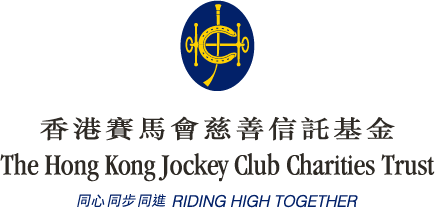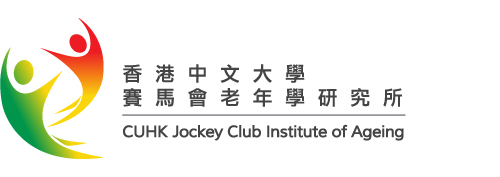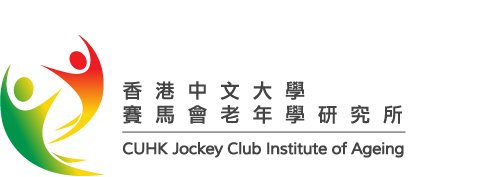
| ENG | 中 |

| ENG | 中 |

| questionnaires | focus group participants |
Outdoor Spaces & Buildings | |||||
Transportation | |||||
Housing | |||||
Social Participation | |||||
Respect & Social Inclusion | |||||
Civic Participation & Employment | |||||
Communication & Information | |||||
Community Support & Health Services | |||||
1 | 2 | 3 | 4 | 5 6 | |
| Less Age-friendly |
Mean Scores |
Mean Scores |
view Central and Western
Final Assessment Report
|
546 questionnaires |
44 focus group participants |
Outdoor Spaces & Buildings 4.23 | |||||
Transportation 4.41 | |||||
Housing 3.64 | |||||
Social Participation 4.44 | |||||
Respect & Social Inclusion 4.32 | |||||
Civic Participation & Employment 4.07 | |||||
Communication & Information 4.14 | |||||
Community Support & Health Services 3.88 | |||||
1 | 2 | 3 | 4 | 5 6 | |
| Less Age-friendly |
Mean Scores |
Mean Scores |
view Central and Western
Final Assessment Report
|
569 questionnaires |
36 focus group participants |
Outdoor Spaces & Buildings 4.22 | |||||
Transportation 4.48 | |||||
Housing 3.88 | |||||
Social Participation 4.36 | |||||
Respect & Social Inclusion 4.10 | |||||
Civic Participation & Employment 3.82 | |||||
Communication & Information 4.11 | |||||
Community Support & Health Services 3.79 | |||||
1 | 2 | 3 | 4 | 5 6 | |
| Less Age-friendly |
Mean Scores |
Mean Scores |
|
523 questionnaires |
42 focus group participants |
Outdoor Spaces & Buildings 4.05 | |||||
Transportation 4.26 | |||||
Housing 4.01 | |||||
Social Participation 4.50 | |||||
Respect & Social Inclusion 4.39 | |||||
Civic Participation & Employment 4.02 | |||||
Communication & Information 4.18 | |||||
Community Support & Health Services 3.91 | |||||
1 | 2 | 3 | 4 | 5 6 | |
| Less Age-friendly |
Mean Scores |
Mean Scores |
view Wan Chai
Final Assessment Report
|
562 questionnaires |
34 focus group participants |
Outdoor Spaces & Buildings 4.17 | |||||
Transportation 4.44 | |||||
Housing 3.70 | |||||
Social Participation 4.47 | |||||
Respect & Social Inclusion 4.27 | |||||
Civic Participation & Employment 4.12 | |||||
Communication & Information 4.21 | |||||
Community Support & Health Services 3.78 | |||||
1 | 2 | 3 | 4 | 5 6 | |
| Less Age-friendly |
Mean Scores |
Mean Scores |
view Wan Chai
Final Assessment Report
view Sha Tin
Final Assessment Report
|
515 questionnaires |
32 focus group participants |
Outdoor Spaces & Buildings 4.10 | |||||
Transportation 4.28 | |||||
Housing 3.74 | |||||
Social Participation 3.97 | |||||
Respect & Social Inclusion 3.90 | |||||
Civic Participation & Employment 3.73 | |||||
Communication & Information 4.02 | |||||
Community Support & Health Services 3.47 | |||||
1 | 2 | 3 | 4 | 5 6 | |
| Less Age-friendly |
Mean Scores |
Mean Scores |
view Sha Tin
Final Assessment Report
view Tai Po
Final Assessment Report
|
515 questionnaires |
48 focus group participants |
Outdoor Spaces & Buildings 4.11 | |||||
Transportation 4.29 | |||||
Housing 3.80 | |||||
Social Participation 4.14 | |||||
Respect & Social Inclusion 3.91 | |||||
Civic Participation & Employment 3.76 | |||||
Communication & Information 4.03 | |||||
Community Support & Health Services 3.62 | |||||
1 | 2 | 3 | 4 | 5 6 | |
| Less Age-friendly |
Mean Scores |
Mean Scores |
view Tai Po
Final Assessment Report
view Islands
Final Assessment Report
|
663 questionnaires |
30 focus group participants |
Outdoor Spaces & Buildings 3.86 | |||||
Transportation 3.89 | |||||
Housing 3.56 | |||||
Social Participation 4.32 | |||||
Respect & Social Inclusion 4.21 | |||||
Civic Participation & Employment 3.90 | |||||
Communication & Information 4.07 | |||||
Community Support & Health Services 3.80 | |||||
1 | 2 | 3 | 4 | 5 6 | |
| Less Age-friendly |
Mean Scores |
Mean Scores |
view Islands
Final Assessment Report
view Tsuen Wan
Final Assessment Report
|
611 questionnaires |
32 focus group participants |
Outdoor Spaces & Buildings 4.03 | |||||
Transportation 4.29 | |||||
Housing 3.64 | |||||
Social Participation 4.26 | |||||
Respect & Social Inclusion 4.16 | |||||
Civic Participation & Employment 3.92 | |||||
Communication & Information 4.09 | |||||
Community Support & Health Services 3.57 | |||||
1 | 2 | 3 | 4 | 5 6 | |
| Less Age-friendly |
Mean Scores |
Mean Scores |
view Tsuen Wan
Final Assessment Report
view Kowloon City
Final Assessment Report
|
588 questionnaires |
52 focus group participants |
Outdoor Spaces & Buildings 4.23 | |||||
Transportation 4.33 | |||||
Housing 3.86 | |||||
Social Participation 4.47 | |||||
Respect & Social Inclusion 4.33 | |||||
Civic Participation & Employment 4.11 | |||||
Communication & Information 4.37 | |||||
Community Support & Health Services 3.92 | |||||
1 | 2 | 3 | 4 | 5 6 | |
| Less Age-friendly |
Mean Scores |
Mean Scores |
view Kowloon City
Final Assessment Report
view Kwun Tong
Final Assessment Report
|
629 questionnaires |
48 focus group participants |
Outdoor Spaces & Buildings 4.19 | |||||
Transportation 4.32 | |||||
Housing 3.98 | |||||
Social Participation 4.54 | |||||
Respect & Social Inclusion 4.37 | |||||
Civic Participation & Employment 4.10 | |||||
Communication & Information 4.34 | |||||
Community Support & Health Services 3.85 | |||||
1 | 2 | 3 | 4 | 5 6 | |
| Less Age-friendly |
Mean Scores |
Mean Scores |
view Kwun Tong
Final Assessment Report
|
566 questionnaires |
28 focus group participants |
Outdoor Spaces & Buildings 3.98 | |||||
Transportation 4.22 | |||||
Housing 3.69 | |||||
Social Participation 3.86 | |||||
Respect & Social Inclusion 3.79 | |||||
Civic Participation & Employment 3.62 | |||||
Communication & Information 3.94 | |||||
Community Support & Health Services 3.54 | |||||
1 | 2 | 3 | 4 | 5 6 | |
| Less Age-friendly |
Mean Scores |
Mean Scores |
|
539 questionnaires |
33 focus group participants |
Outdoor Spaces & Buildings 3.99 | |||||
Transportation 4.03 | |||||
Housing 3.51 | |||||
Social Participation 3.92 | |||||
Respect & Social Inclusion 3.74 | |||||
Civic Participation & Employment 3.62 | |||||
Communication & Information 3.86 | |||||
Community Support & Health Services 3.45 | |||||
1 | 2 | 3 | 4 | 5 6 | |
| Less Age-friendly |
Mean Scores |
Mean Scores |
|
568 questionnaires |
31 focus group participants |
Outdoor Spaces & Buildings 4.12 | |||||
Transportation 4.20 | |||||
Housing 3.70 | |||||
Social Participation 3.94 | |||||
Respect & Social Inclusion 3.83 | |||||
Civic Participation & Employment 3.54 | |||||
Communication & Information 3.95 | |||||
Community Support & Health Services 3.50 | |||||
1 | 2 | 3 | 4 | 5 6 | |
| Less Age-friendly |
Mean Scores |
Mean Scores |
|
514 questionnaires |
28 focus group participants |
Outdoor Spaces & Buildings 4.09 | |||||
Transportation 4.38 | |||||
Housing 3.75 | |||||
Social Participation 4.42 | |||||
Respect & Social Inclusion 4.25 | |||||
Civic Participation & Employment 4.09 | |||||
Communication & Information 4.26 | |||||
Community Support & Health Services 3.75 | |||||
1 | 2 | 3 | 4 | 5 6 | |
| Less Age-friendly |
Mean Scores |
Mean Scores |
|
624 questionnaires |
41 focus group participants |
Outdoor Spaces & Buildings 4.09 | |||||
Transportation 4.40 | |||||
Housing 4.04 | |||||
Social Participation 4.34 | |||||
Respect & Social Inclusion 4.20 | |||||
Civic Participation & Employment 3.92 | |||||
Communication & Information 4.09 | |||||
Community Support & Health Services 3.82 | |||||
1 | 2 | 3 | 4 | 5 6 | |
| Less Age-friendly |
Mean Scores |
Mean Scores |
|
513 questionnaires |
27 focus group participants |
Outdoor Spaces & Buildings 4.14 | |||||
Transportation 4.32 | |||||
Housing 3.75 | |||||
Social Participation 4.37 | |||||
Respect & Social Inclusion 4.24 | |||||
Civic Participation & Employment 4.10 | |||||
Communication & Information 4.21 | |||||
Community Support & Health Services 3.75 | |||||
1 | 2 | 3 | 4 | 5 6 | |
| Less Age-friendly |
Mean Scores |
Mean Scores |
|
533 questionnaires |
30 focus group participants |
Outdoor Spaces & Buildings 4.08 | |||||
Transportation 4.24 | |||||
Housing 3.77 | |||||
Social Participation 4.34 | |||||
Respect & Social Inclusion 4.19 | |||||
Civic Participation & Employment 4.10 | |||||
Communication & Information 4.25 | |||||
Community Support & Health Services 3.84 | |||||
1 | 2 | 3 | 4 | 5 6 | |
| Less Age-friendly |
Mean Scores |
Mean Scores |
|
529 questionnaires |
29 focus group participants |
Outdoor Spaces & Buildings 4.04 | |||||
Transportation 4.21 | |||||
Housing 3.62 | |||||
Social Participation 4.37 | |||||
Respect & Social Inclusion 4.23 | |||||
Civic Participation & Employment 4.06 | |||||
Communication & Information 4.26 | |||||
Community Support & Health Services 3.87 | |||||
1 | 2 | 3 | 4 | 5 6 | |
| Less Age-friendly |
Mean Scores |
Mean Scores |
Initiated and funded by:

Project partners:















